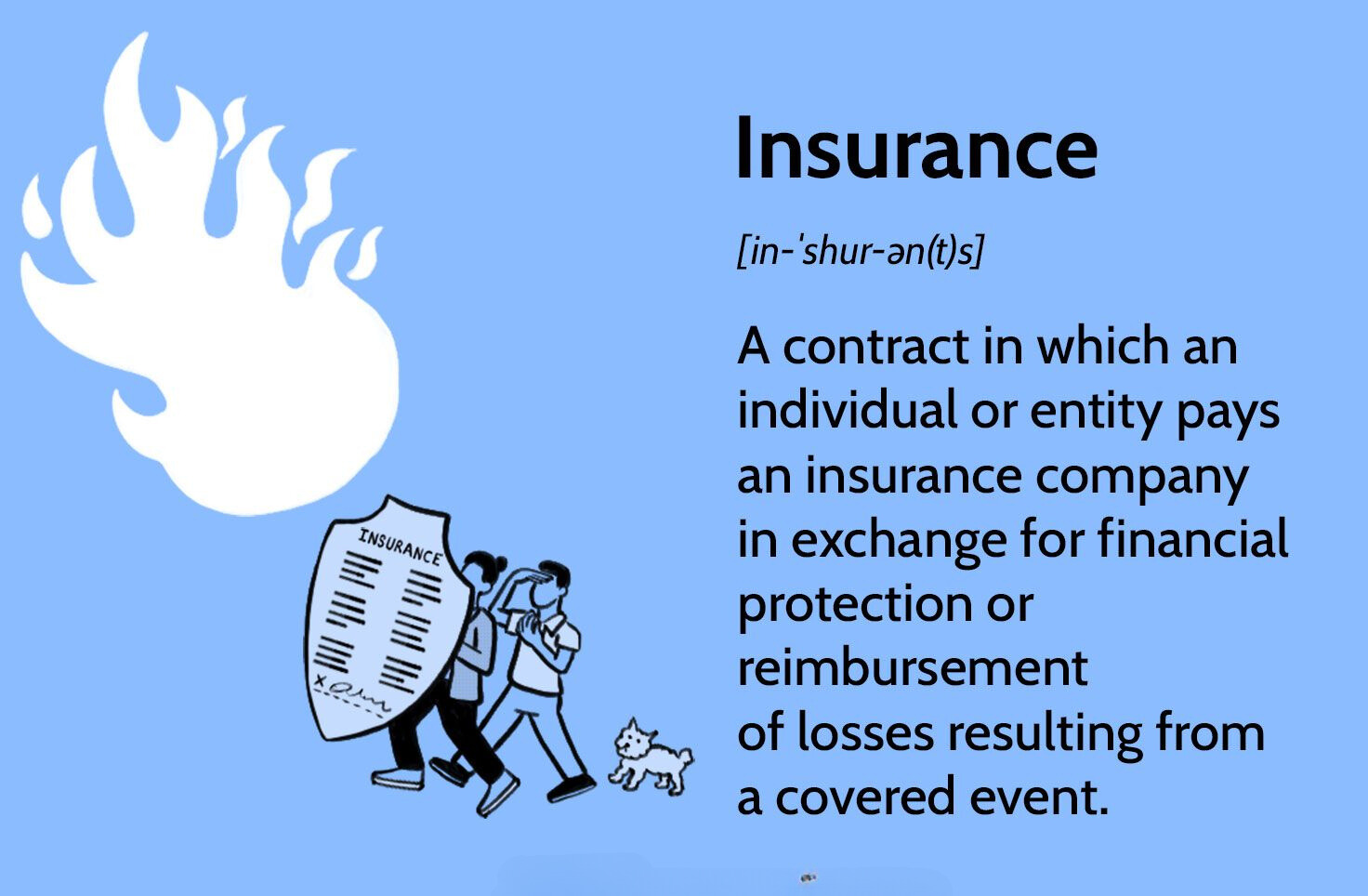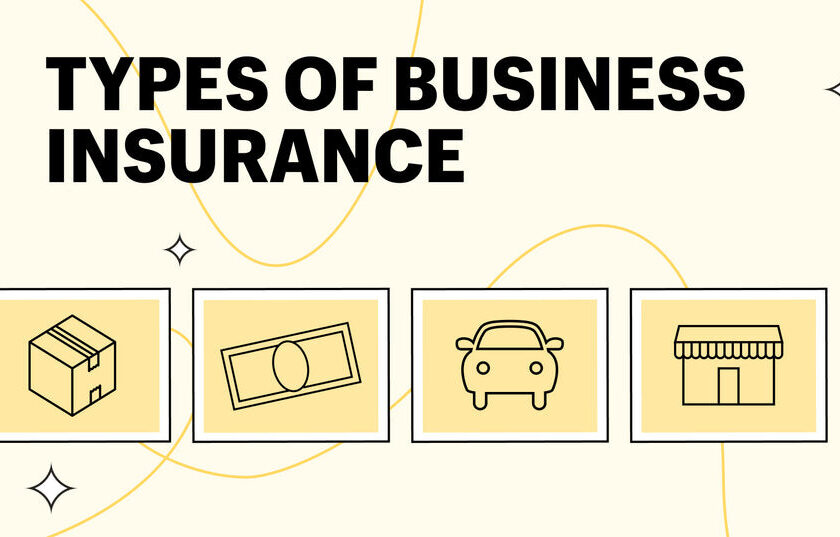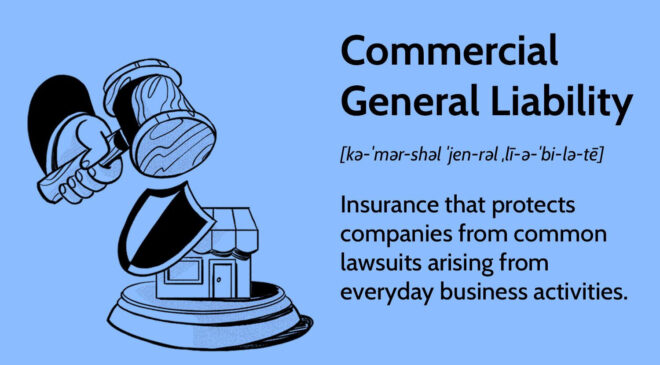What is Insurance? What are the types of Business Insurance?

Insurance
Insurance is an agreement between an individual or organization (known as the policyholder) and an insurance company. Its primary purpose is to offer financial protection and compensation in case of unforeseen losses or damages. The policyholder pays premiums regularly, and in return, the insurance company agrees to cover or reimburse the policyholder for specific risks mentioned in the insurance policy. There are many types of insurances and the Business Insurance is one of them.

The concept of insurance is to shift the potential burden of losses from the policyholder to the insurance company. It assists individuals and businesses in mitigating the financial impact of unexpected events such as accidents, natural disasters, theft, illness, or liability claims. The coverage and terms of insurance policies vary depending on the type of policy chosen.
Insurance policies encompass a wide range of areas, including health, life, property, automobile, liability, business, and travel, among others. Each policy has its own set of conditions, exclusions, and coverage limits. In the event of a covered incident, the policyholder can file a claim with the insurance company, which will evaluate the claim and provide compensation as per the policy terms.
Insurance companies distribute the risk among a large pool of policyholders, enabling them to collectively manage potential losses. This system offers individuals and businesses a sense of security, knowing that they have financial protection against unexpected events.
Types of Insurance for Businesses

Business Insurance

Business insurance is a comprehensive term covering various types of insurance designed to safeguard businesses from different risks. It may consist of property insurance, liability insurance, business interruption insurance, commercial auto insurance, cyber liability insurance, and more. The Business owners can tailor their insurance packages to suit their specific requirements and industry.
Business Insurance for LLC

Business insurance for Limited Liability Companies (LLCs) safeguards the assets and operations of the company. It typically includes coverage for general liability, property, and professional liability. The specific insurance needs may vary depending on the nature of the LLC’s business.
General Liability Insurance

General liability insurance protects businesses against claims made by third parties for bodily injury, property damage, or personal injury resulting from business operations, products, or services. It covers legal expenses, settlements, and judgments, minimizing financial loss caused by such claims.
Small Business Insurance

Small business insurance encompasses a range of insurance policies tailored specifically for small businesses. It may include general liability, property, business interruption, and commercial auto insurance, among others. Small business owners can customize their coverage based on their unique needs.
Business Liability Insurance

Business liability insurance refers to policies that shield businesses from liability claims. It typically includes general liability, professional liability (errors and omissions), and product liability coverage. These policies provide financial protection against lawsuits, legal expenses, and damages arising from covered claims.
Workers Comp Insurance /

Workers’ compensation insurance, as mentioned earlier, is a specific type of insurance that provides coverage for employees injured or becoming ill on the job. It compensates workers for medical expenses, rehabilitation costs, and lost wages while protecting employers from potential lawsuits related to workplace injuries. Workers comp insurance covers employees who experience work-related injuries or illnesses. It ensures that employees receive compensation for medical expenses, lost wages, and rehabilitation costs resulting from workplace accidents.
Frequently Asked Quessions about Insurance
What’s insurance for in business?
Insurance in business serves as a protective measure against potential risks and uncertainties. It provides financial coverage and peace of mind by mitigating the impact of unexpected events such as property damage, liability claims, or business interruptions.
What are the 3 most important insurances?
The three most important insurances for businesses are general liability insurance, which protects against third-party claims; property insurance, which covers damage to business assets; and workers’ compensation insurance, which provides coverage for employee injuries or illnesses.
What is the main purpose of insurance?
The main purpose of insurance is to transfer the financial risk of potential losses from individuals or businesses to an insurance company. It ensures that policyholders are protected against unexpected events, such as accidents, disasters, or liability claims, by providing compensation or coverage for the associated costs.
What is general liability insurance?
General liability insurance provides coverage for businesses against claims of bodily injury, property damage, or personal injury caused by their operations, products, or services.
What does a Commercial General Liability (CGL) policy cover?
A CGL policy covers third-party claims for bodily injury, property damage, or personal injury caused by a business’s operations, products, or services. It includes legal defense costs, settlements, and judgments.
What is liability insurance, and could you provide an example?
Liability insurance protects individuals or businesses from legal obligations and financial losses resulting from third-party claims. For example, professional liability insurance covers professionals like doctors or lawyers against claims of negligence or errors in their services.
What is the difference between general liability and limited liability?
General liability refers to insurance coverage that protects businesses against claims of bodily injury, property damage, or personal injury. Limited liability, on the other hand, is a legal concept that protects the personal assets of business owners from being used to settle business debts or liabilities.
What is legal liability in business insurance?
Legal liability in business insurance refers to the responsibility or obligation of a business to compensate for damages or injuries caused to third parties due to its operations, products, or services. It covers legal expenses, settlements, and judgments that may arise from liability claims.
What is liability insurance with an example?
Liability insurance provides coverage for businesses against claims made by third parties for bodily injury, property damage, or personal injury. For example, if a customer slips and falls in your store and sues for medical expenses, liability insurance would help cover the legal costs and any potential settlements or judgments.
How much does liability insurance cost?
The cost of liability insurance varies depending on various factors, including the type of business, its size, location, coverage limits, and the level of risk associated with its operations. Generally, small businesses can expect to pay an annual premium ranging from a few hundred to a few thousand dollars for liability insurance. It’s best to obtain quotes from insurance providers to get an accurate cost estimate for your specific business.
What is the highest workers’ comp rate?
The highest workers’ compensation rate varies by state and occupation. Rates are determined based on the level of risk associated with different jobs. For example, industries with high injury rates, such as construction or manufacturing, may have higher rates compared to low-risk industries like office administration.
Is workers’ comp mandatory in NY?
Yes, workers’ compensation insurance is mandatory for most employers in New York. Employers are required to provide workers’ comp coverage to their employees, regardless of the size of the business. Failure to carry workers’ compensation insurance can result in penalties and legal consequences.
How much is workers’ comp in CA?
The cost of workers’ compensation insurance in California varies depending on factors such as the industry, the number of employees, and the company’s claims history. Rates are determined by insurance carriers approved by the state. Employers can obtain quotes from different insurance providers to find the best coverage at the most competitive rates.
